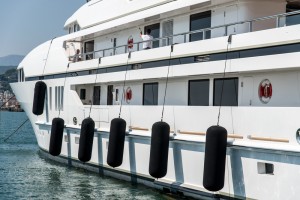
When you have insurance questions, it is tempting to ask friends and coworkers for their advice. You turn to these people for guidance in your personal life, so it is natural to seek their input when considering other important issues. Basing your insurance decisions solely on advice from non-professionals may not be a good idea, however, as this advice is usually based on an individual’s own experiences and anecdotes. In honor of these well-intentioned but ill-informed sources, we have decided to share with you
the worst advice we’ve ever heard about yacht crew insurance
– along with the real facts you can use to make informed decisions about your health insurance coverage.
We Don’t Need Insurance Because We Are Covered By the Owner
Not true. The yacht owner’s insurance is not your insurance. Also keep in mind that the owner’s insurance and liability does not necessarily extend coverage to you when you are off the vessel or on vacation. There may be other restrictions and limitations as well, which can create large gaps in your coverage. When you incur medical expenses, doctors and hospitals will hold you responsible for payment, not the vessel owner. Rule of thumb is, unless the owner has a separate group crew health insurance plan, it’s best to have your own individual health insurance plan. The Insurance Specialists at MHG work with several leading international and US carriers and are happy to help find the right plan that meets your coverage requirements and budget.
Your Stateside Insurance Plan Will Cover You as We Travel
Some crew members think that as long as they have medical insurance at home, they are fully covered wherever they roam. Actually, typical medical insurance only provides coverage while you are in your home country, leaving you unprotected for any injuries or illnesses that could occur while you’re away. MHG Insurance Brokers offer international health insurance plans designed specifically for yacht Captains and Crew. These plans typically offer worldwide coverage on and off the vessel, emergency evacuation/repatriation, winter and water sports coverage, amateur sailboat racing, maternity and dependent options, to ensure you are fully covered no matter where you go.
You Can Wait To File A Claim
It’s important to keep in mind that some policies have a time limit on submitting claims. While there are reasons for the limitation, the most important thing to know is that if you have a claim where you need to be reimbursed, you need to get it submitted in a timely manner. The limit can be as short as 90 days from when you received the treatment. That seems like a very easy deadline to meet, but we have seen claims coming in from two or three years ago and in some cases the insurance carriers will not allow the claim. Of course at MHG, we're here to help get a claim paid in your favor when we can. In fact, that's when it's often our time to shine!
Don’t Claim Because You Might Lose Your Job
Filing a health insurance claim should not endanger your job; in fact, filing a claim should have absolutely no effect on your job status, because it is your right to have proper health care and insurance while you are employed.
Find The Cheapest Plan Because They Are All The Same
Yacht crew insurance plans vary greatly, and price should never be your only consideration. If two policies seem similar but the costs are different, look closely at the deductible, coverage, and copay amounts. A company’s service record should also be a consideration. Whether you have a question about your coverage, policy or claim, you’re looking for a company that provides prompt, friendly, personalized attention. Right now there are some new plans out there that look like Gold, for the price of Pyrite. Remember, if it sounds too good to be true, it probably is. Speak with an insurance broker who can help explain what you are really getting (or not) before something happens and you find yourself or your crew thinking something was covered that isn't.
As independent brokers who are constantly scanning the marketplace, we at MHG are your advocates and are here to help guide you and help keep you safe.
Selecting the right insurance plan is important and should not be taken lightly. The experienced marine insurance brokers at MHG will help you sort through the terminology and key features to determine the best plan for your unique circumstances, coverage requirements, and budget.
MHG Insurance offers a wide range of
yacht crew insurance
plans including international health insurance, US health insurance, sick pay/disability insurance, life insurance and travel insurance. Solutions for individuals, groups and fleets are available.
Call
MHG Insurance
today at +1 954 828 1819 or +44 (0) 1624 678668 or visit us online at
mhginsurance.com
to find the yacht crew health insurance plan that perfectly meets your needs.
The Worst Advice We’ve Ever Heard About Yacht Crew Insurance